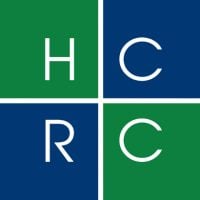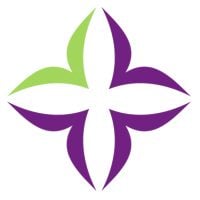Serenity Club of Springfield
Drug Rehab Center in Springfield, Massachusetts
The Serenity Club of Springfield is a treatment facility in Massachusetts dedicated to helping individuals with addiction through comprehensive treatment plans, family therapy, and aftercare support to encourage positive recovery plans.
Multiple patients have reported Serenity Club of Springfield as permanently closed.
Research other rehabs in Springfield, Massachusetts, or get help finding an open facility.
About
The Serenity Club of Springfield is a premier treatment facility in Springfield, Massachusetts that is dedicated to helping individuals with alcohol and opioid addiction, substance abuse, and drug addiction. They help clients overcome their addiction through comprehensive treatment and compassionate care. Through their comprehensive treatment plan, clients can access aftercare support, drug rehab, group therapy, and outpatient treatment. Additionally, residential long-term treatment is available for those who need it.
Serenity Club of Springfield also provides family therapy and aftercare support for their clients. This allows for family members and friends to come together in supportive, understanding environments, to provide additional care and guidance. They strive to build a supportive and encouraging community, which allows for clients to develop and maintain positive recovery plans. The Serenity Club of Springfield is determined to ensure that all individuals who come to them for help can have the best chance of long-term success in all areas of life.
Genders
Ages
Modality
Additional
Conditions and Issues Treated
Recovering from substance abuse is an essential part of a healthy life for many people. It’s a long and challenging process, but it can be worth it in the end if you manage to get through all parts. Detoxifying your body, rehabilitation after that time passes or when needed (depending on what type), and then recovery while also receiving therapy support throughout this entire process.
A standard route to starting recovering from substance abuse and addiction is through a detoxification center. There you can completely heal your body and mind and continue on the path of recovery without feeling any of the lingering effects of substances.
Within the past decade, opioid addiction has become a nationwide epidemic. The United States hosts one of the world’s highest rates of opioid use or abuse and has one of the highest rates of opioid-related deaths. In the United States, opioid drugs are classified as Schedule II-IV controlled substances due to their highly addictive properties and potential for abuse. These include morphine, opium, heroin, oxycodone, hydrocodone, methadone, and fentanyl. Physicians usually prescribe opioids to help control pain.
Over time, opioid users develop a tolerance for the drugs, which makes it difficult, if not impossible, to function without them. In turn, opioid users often resort to illicit means of obtaining the drugs. These means can include drug dealers, friends, and family members who do not have legitimate prescriptions for the drugs. Opioid addiction can quickly lead to heroin use, especially those seeking more intense highs than prescription opioids offer. Due to the high risk of overdose, heroin users are at a much higher risk for illness and death.
Levels of Care Offered
This center offers a variety of custom treatment tailored to individual recovery. Currently available are Aftercare Support, Drug Rehab, Outpatient, with additional therapies available as listed below.
An outpatient treatment program is set up to help with alcohol or drug addiction or a co-occurring disorder. The treatment must attend the treatment facility for their therapy and other programs but return home each night. The frequency of mandatory attendance decreases after much of the treatment program is complete. The treatment programs are monitored by the treatment facility and case managers who work for a judge or judge’s office. A treatment program may be performed out of a treatment facility, treatment clinic, or treatment center.
The benefits of outpatient treatment programs are many. One of the most beneficial treatment programs is that it allows treatment for clients who cannot afford or may not be able to attend treatment at a treatment facility, treatment center, or treatment clinic full-time. Another benefit of treatment programs is that they reduce crime rates because treatment allows people to treat their addiction.
Recovering drug addicts need aftercare support when they leave treatment. The support can include guidance through 12-step programs, outpatient rehabilitation programs, and support groups. Aftercare supports the individual in their desire to maintain sobriety by reducing relapse risk with positive choices.
The success of drug treatment does not end when the addict leaves the rehabilitation center. There is no such thing as a “one and done” type of rehabilitation process. Recovery is a lifelong journey that begins with treatment and continues by the addict committing to outside support groups or drug rehab programs.
When choosing a program, it is crucial to choose one that will provide long-term aftercare support. This ensures that you have the tools you need to sustain your recovery.
Therapies & Programs
The therapies typically involve all family members, potentially including siblings, children, and parents who play a role in their daily lives. These sessions can be essential because they address past issues that may have affected an addict or alcoholic’s recovery process. They provide support during this time when it is needed most!
A family therapy session, often called a family meeting or intervention, is a necessary process that helps loved ones of addicts see their situation in a new light. It’s also one of the most challenging things families will ever have to do when they’re facing a loved one battling addiction or alcoholism.
Group therapy sessions provide recovering addicts with a chance to cope with everyday situations that many face. Group therapy sessions are held in rehab facilities, clinics, churches or community centers that offer drug addiction treatment.
People who attend these groups are encouraged to voice their feelings and support other addicts in recovery. This helps group members strengthen their own recovery program while cheering on others who are struggling with sobriety.
Additional Details
Specifics, location, and helpful extra information.
Springfield, Massachusetts 1108 Phone Number(413) 736-9512 Meta DetailsUpdated November 25, 2023
Staff Verified
Patient Reviews
There are no reviews yet. Be the first one to write one.
Springfield, Massachusetts Addiction Information
Massachusetts has one of the highest rates of drug abuse in the country. More than half a million Massachusetts residents abuse alcohol while more than 1.5 million use illegal drugs each year. This drug and alcohol usage is the cause of over 8% of all deaths in the state. In 2017, Massachusetts ranked in the top 10 of the states with the highest opioid overdose rates.
In Springfield, MA, there were 607 opioid-related overdose deaths in 2016. That's a rate of 24.8 per 100,000 people, which is more than three times the national average. Opioids remain the main driver of drug overdose deaths. Inpatient rehab programs in Springfield, MA, consist of a schedule of rigorous physical exercise and a strict drug and alcohol-free lifestyle for the duration of the stay.
Treatment in Nearby Cities
- West Springfield, MA (3.2 mi.)
- Amherst, MA (19.9 mi.)
- Methuen, MA (82.9 mi.)
- Salisbury, MA (101.4 mi.)
- Hopedale, MA (52.5 mi.)
Centers near Serenity Club of Springfield
The facility name, logo and brand are the property and registered trademarks of Serenity Club of Springfield, and are being used for identification and informational purposes only. Use of these names, logos and brands shall not imply endorsement. RehabNow.org is not affiliated with or sponsored by Serenity Club of Springfield.



